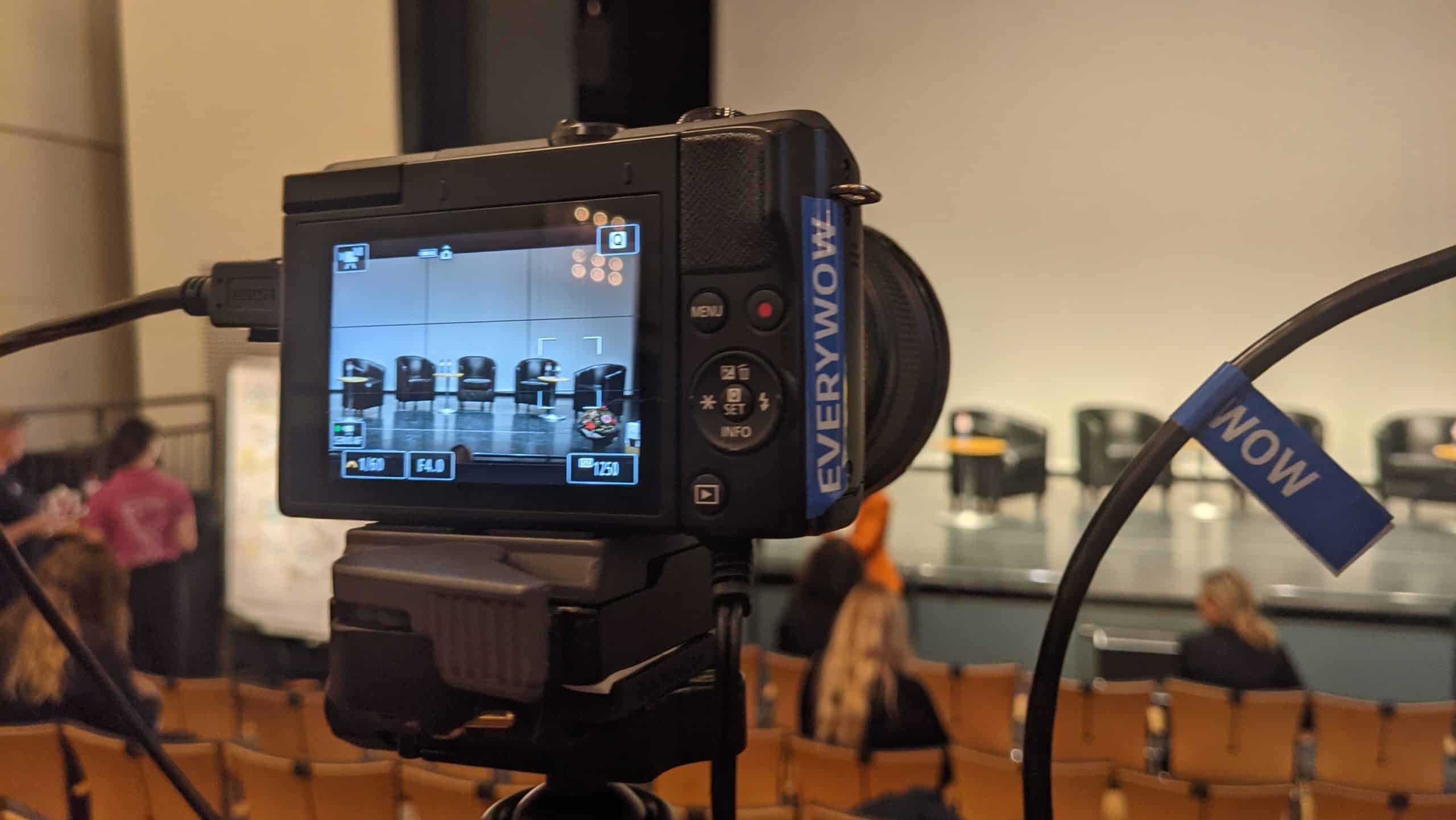To maintain interest and engagement throughout a conference, it is important, to not only to offer a wide range of relevant topics that cater to the diverse interests of your attendees. It is also essential to incorporate a variety of session formats that cater to different learning and activity preferences of your audience. Consider including the following types of sessions in your conference program.
Keynote presentations
High-profile speakers share their expertise and insights on industry trends or innovations. Keynotes usually set the tone for the conference and are meant to inspire and inform attendees. Ensure that your speaker is well-prepared, engaging, and has a strong reputation in the field. Coordinate their travel and accommodations, and consider having a backup plan in case of cancellations or delays.
Tip: Encourage keynote speakers to hold their master presentation at your conference, do not force them to come up with something new and specific to your conference. They are supposed to give new ideas.
Panel discussions
A group of experts discusses a topic, offering diverse perspectives and encouraging audience interaction. Panel discussions can foster debate and increase audience engagement. Select diverse panellists who bring different perspectives and experiences. Clearly define the panel topic and objectives, and choose a skilled moderator to facilitate the discussion and manage audience Q&A. This is a good format for experts who would present their topic very dry and boring. They will be challenged in a panel discussion.
Tip: Select an empathic and knowledgeable moderator for the panel. It’s important, that they do not push their own agenda.
Fire-side chat
An expert is interviewed by another person in a conversational, informal setting. This format can create a more personal connection between the speaker and the audience. Ensure the interviewer is familiar with the interviewee’s work and is skilled at asking thoughtful questions. Prepare a comfortable setting to encourage a relaxed, engaging conversation.
Tip: Ask the expert, if they know a trustworthy person, who they would like to be interviewed by. It gets better, if they know each other already.
Workshops
Hands-on sessions where attendees can develop new skills, collaborate with peers, and apply their learning in a practical setting. Workshops are interactive and often focus on specific tools, techniques, or best practices. Ensure the room setup is conducive towards collaboration and choose skilled facilitators who can effectively manage group dynamics.
Tip: Provide all necessary materials and equipment.
Roundtable discussions
Small group conversations that facilitate more profound engagement, networking, and exchange of ideas. Roundtables allow participants to learn from each other’s experiences and perspectives. Limit the number of participants to facilitate more in-depth engagement. Assign a facilitator or topic leader for each table to keep discussions focused and encourage participation.
Tip: The facilitator should not participate in the discussion and instead focus on facilitating it.
Lightning talks
Short, fast-paced presentations that allow multiple speakers to share their insights on a specific topic. Lightning talks are an efficient way to share diverse ideas and experiences within a limited time frame. Select a diverse range of speakers and topics, and strictly enforce time limits.
Tip: Consider providing coaching or guidelines to help speakers prepare concise, engaging presentations.
Poster sessions
This format enables researchers or practitioners to present their work in a visual format, often using a large poster or digital display. Attendees can walk around the room, view the posters, and engage with presenters one-on-one or in small groups. This format is ideal for showcasing multiple projects or research studies simultaneously. Allocate ample space for poster displays and provide clear guidelines for poster dimensions and content.
Tip: Schedule dedicated time in the conference agenda for attendees to engage with presenters.
Birds of Feather sessions
Informal gatherings that bring together attendees with similar interests, roles, or challenges, to network, share ideas, and collaborate. These sessions are usually unstructured and can be participant-led or facilitated by a session organizer. Provide a relaxed, informal setting for participants to connect. Encourage attendees to propose topics ahead of time or facilitate a process for session leaders to emerge.
Tip: Offer drinks and food for physical wellbeing.
PechaKucha presentations
A fast-paced presentation style in which 20 slides are shown for 20 seconds each, resulting in a 6 minute and 40 second presentation. This format encourages concise, engaging presentations and allows for multiple speakers to present within a short time frame. Offer guidance or coaching to help presenters prepare for this unique format. Ensure that audiovisual equipment is functioning properly, and that the timekeeper is prepared to enforce strict timing.
Tip: Provide a template for the presentation that includes already all the settings for automatic slide changing.
Debate sessions
Two or more speakers with opposing views on a topic engage in a structured debate, with a moderator facilitating the discussion. This format encourages critical thinking and can lead to lively, thought-provoking conversations. Clearly define the debate format, rules, and time limits.
Tip: Choose a skilled moderator who can maintain a balanced, fair discussion and manage audience participation.
Certification training sessions
These sessions are designed to provide attendees with the knowledge and skills required to earn a specific professional certification. Typically, these sessions cover the essential concepts, best practices, and exam preparation strategies for a particular certification. Ensure that the training content is aligned with the certification requirements and objectives. Select an experienced, knowledgeable instructor or training company who is familiar with the certification exam and can effectively convey the material.
Tip: Directly offer the option for participants of the training to do the certification on-site at the end of your conference.

